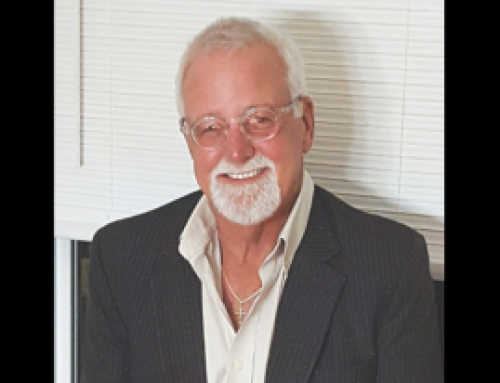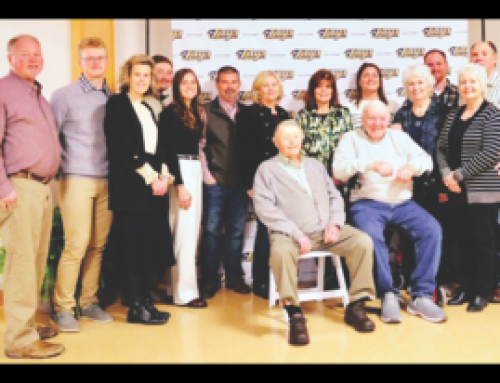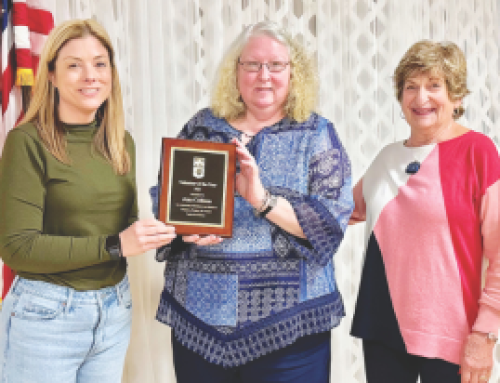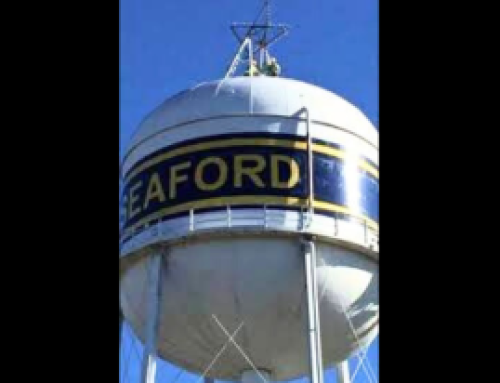Last Tuesday, the Seaford City Council approved a request by BCDE Investments Group LLC., property owner of 415 N Front Street, to subdivide a single lot into three separate lots. The vacant land was used as parking on the corner of Front and Walker Street. The original zoning was commercial and was approved for variance by Board of Adjustments to build R2 single family homes.
The second public hearing was for the Governors Grant Investors LLC., property owner of a parcel on Chesapeake Drive. Presented was the final site plan review for the Governors Grant Phase IV which is zoned R-2 medium density residential. This is the final phase which is located behind the existing Governor’s Grant for 40 subdivided lots.
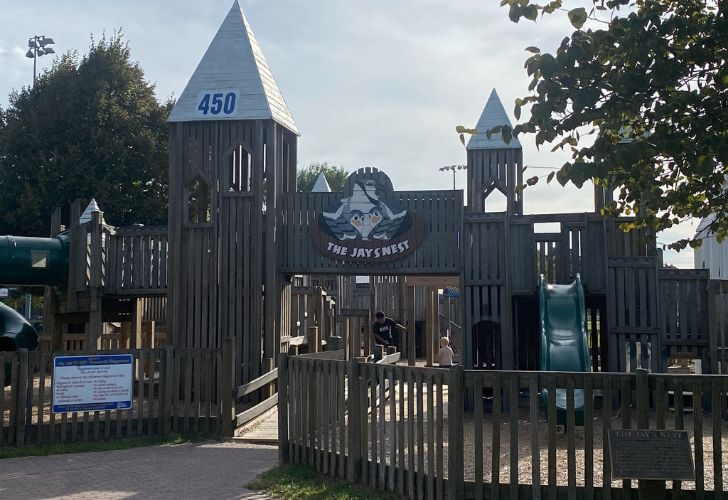
Jay’s Nest playground
Questions were answered on the extension of water, sewer, and electric and the final approval is still needed by Sussex Conservation as this approval is required for it to move forward. Councilman Alan Quillen inquired about the stormwater pond and who will pay for repairs to the pond. Gus Kroll, a developing partner of the project, spoke on repairs and improvements to the storm water management pond. The pond is out of compliance for an extended period of time and the developers agree to bring it into compliance and the new community will take over the responsibility of the pond. There will be cross access easements and it will require access to outlets and agreed to complete the recommended repairs.
The designed pond will be dry within 72 hours after a rain event. The existing pond was built around 2005 and does not meet the updated standards. Improvements to the pond will include the removal of two feet of soil and replacement with concrete sand that is porous. The developer will take on maintenance and liability at no cost to the other development. The eventual formation of the HOA of the 40 lots will take over maintenance.
Tri-State Community Partners, a non-profit, presented the results of a condition survey of Jay’s Nest playground at the Seaford Sports Complex and will discuss a plan for renovations and enhancement to the facility. The 2002 project was constructed for the community and over the years is beginning to deteriorate. Architect Brad Thornton reviewed the findings and recommendations to the council. Thornton reviewed observations from a site visit, restorations and renovations recommendations, and additional possible upgrades for the future.
The playground was primarily built with pressure treated structures and some were recently replaced with synthetic materials. In 2023 there were emergency repairs in order to keep the playground open. Some findings show that two play groups and the sand areas are in good condition. The safety surface is engineered with fiber and well maintained but found wood fiber is decomposed over time and does not provide impact protection. An impact test would confirm finding.
Slides are in good condition but the swings are in poor condition and Thornton said they are at the end of life. Thornton explained an issue with pressure treated wood is that end grain is exposed to elements and water making these structural elements deteriorating. There is rot at the base of some posts and requires further investigation to recommend what is required to fix it. The climbing and balance are also at the end of life and Thornton pointed out that the belts are torn and steel exposed on nylon. The restoration and recommendations include to replace swings, restore play structure and bring back to life, limited replacement as well as new elements of play structure.
In the final piece, Thornton presented some future ideas and how to expand the 2-5 year-old area with more dynamic sand area, spinning elements, and fitness equipment. This is a multi-year project with a focus on safety and replace pieces beyond repair. There will be further information as Tri-State Community Partners and the advisory committee move forward.
Director of Public Works Berley Mears presented additional data related to water meter usage and made the recommendation to start billing water consumption based on meter readings.
The department gathered data in July 2024 reviewing 170 accounts in the Mearfield Development Phase I, III, III and noted 34 have a dedicated irrigation water meter. The range of water consumption was from 8,410 gallons to 73,040 gallons, noting that all were over the base of billing at 7,500 gallons per month per account. In July there was 502,990 gallon of usage not billed but consumed. In 51 homes that are non-irrigation accounts, the range in water consumption was from 8,130 to 61,460 gallons with 418,260 gallons of water consumed but not billed.
Mears requested a code change to section 14 which would require residential properties that have irrigation to install an irrigation meter and pit that serves irrigation system only. The change would require a meter pit to be installed to be used for billing. If there is a current existing meter pit for irrigation, it be used to start billing for usage. If there is a current inground irrigation system with a pit, the city will attempt to add a meter for billing at water only rate. Meter pits have been a requirement for 15 years. This is a follow up on summer presentation and would require a code change and if council proceeds, the code change will require two readings and an advertisement.
A bid for a new truck for public works $41,989 with trade was approved by council. The next council meeting is Wednesday, Sept. 11.

